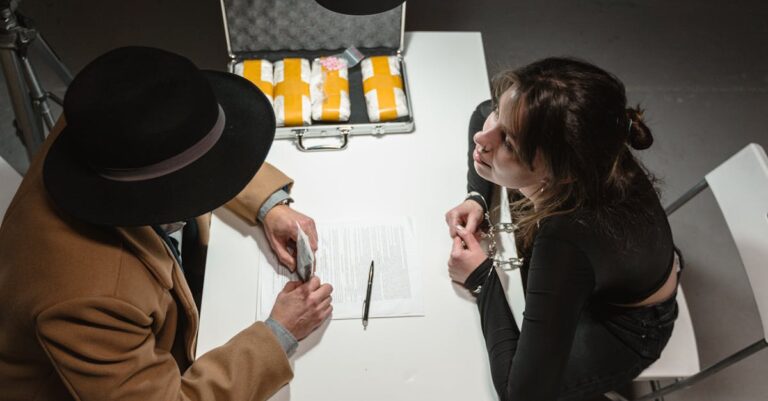
## The Echo Bloom
Rain lashed against the diner window, blurring the neon glow of “Lou’s Eats.” Inside, the smell of burnt coffee and frying bacon clung to everything. Amelia traced a damp circle on the Formica tabletop with her finger, ignoring the lukewarm cup in front of her. Across from her, Jasper chewed slowly on a greasy burger, eyes fixed on the rain-streaked street. He hadn’t blinked in what felt like an eternity.
“You still seeing them?” she asked, voice flat.
Jasper swallowed, a visible effort. “The flashes? Yeah.” He wiped his mouth with the back of his hand, leaving a smear of ketchup. “Stronger today.”
Amelia nodded, pretending to study the chipped paint on the wall. She’s been chasing these “flashes” for three years, ever since her own started – fragmented images of a life she never lived: laughing with strangers on a sun-drenched beach, arguing vehemently in a courtroom, cradling a baby she didn’t recognize. Jasper, an accountant with a penchant for collecting antique clocks, experienced them too. As did a scattered handful of others she’s managed to find – people dismissed as eccentric, troubled, or simply out of sync.
“What did you see today?” she pressed gently.
Jasper’s gaze drifted to the rain, then back to her, a subtle tremor in his hand as he pushed aside his half-eaten burger. “A market… overflowing with fruit, but everything was rotting at the core. And faces… a lot of faces looking… expectant.”
Expectant. That word always rattled Amelia. It wasn’t despair, or fear… it was a strange, unsettling anticipation. Like everyone knew something awful was about to happen, but they were waiting for the signal.
“Like what?” she asked, needing clarity.
“It felt… orchestrated,” he said, finally looking directly at her. “Like a play with a bad script.”
Lou, the diner owner, shuffled past their table, wiping down chairs with a damp rag. He didn’t meet their eyes. Amelia always felt like Lou knew more than he let on, a quiet observer of something bigger. He’s been working at Lou’s Eats for as long as she can remember, a fixture like the chipped tile floor.
A news report crackled from the ancient radio behind the counter—a breaking story about a sudden, inexplicable collapse of the national citrus crop. Blight, they called it. Widespread devastation, threatening food shortages.
Amelia felt a familiar chill crawl up her spine. The rotting fruit, the expectant faces… it was all clicking into place with a disturbing inevitability.
“That’s three,” she murmured, more to herself than to Jasper. “Three events this month mirroring fragments.”
Jasper nodded slowly. “The bank failure last week… the power outage in Phoenix…” He paused, struggling to articulate what they both felt. “It’s like… someone is pulling strings.”
A woman with fiery red hair rushed into the diner, shaking rain from her coat. She moved with an urgency that prickled Amelia’s senses. She ordered a black coffee, her eyes scanning the room with a frantic intensity.
“You see that woman?” Amelia whispered to Jasper, nodding towards the redhead who was now pacing back and forth near the counter.
Jasper followed her gaze, his expression unreadable. “She’s radiating something… a frequency.”
The redhead slammed her coffee cup onto the counter, startling Lou. “Anything? Anyone else experiencing it?” Her voice was raw with desperation.
Lou simply wiped the counter, ignoring her.
The redhead turned to Amelia and Jasper, her eyes locking onto theirs with a startling intensity. “You’re seeing it too, aren’t you?” She didn’s bother with introductions. “My name is Seraphina.”
“We’re trying to understand what’s happening,” Amelia replied, cautious.
Seraphina let out a short, humorless laugh. “Understanding? You can’t understand it. You can only survive it.” She leaned closer, lowering her voice conspiratorially. “They’re layering memories… seeding events.”
“Who?” Jasper asked, his voice barely audible.
“The Architects,” Seraphina said. “They’re rewriting reality, brick by digital brick.”
Amelia felt a wave of nausea wash over her. The phrase resonated with a terrifying logic. “But why?”
“To control,” Seraphina said, her gaze fixed on the rain-streaked window. “To engineer a crisis, manipulate markets, consolidate power. They’re building a new world order, one manufactured narrative at a time.”
Suddenly, Lou slammed his rag down. “Enough with the mumbo jumbo,” he barked, his voice surprisingly sharp. “This is a diner, not a conspiracy convention.” He glared at Seraphina with an intensity that made Amelia step back.
Seraphina didn’t flinch. “You know more than you let on, Lou,” she stated flatly.
Lou’s face paled slightly, then he recovered quickly. “Get out,” he growled, gesturing towards the door.
Seraphina simply smiled, a sad, knowing smile. “Enjoy your coffee,” she said, and walked out into the downpour.
Amelia and Jasper exchanged a look of bewildered apprehension.
“Who is he protecting?” Amelia wondered, glancing back at Lou who was pointedly ignoring them.
“Or is he one of them?” Jasper added, his face grim.
They left the diner, stepping out into the relentless rain. The streetlights cast an eerie glow on the slick pavement. As they walked, Amelia felt another flash – a fleeting image of herself standing in a sterile white room, hooked up to countless wires… a scientist’s voice echoing in her ears as he spoke about “neural synchronization.”
“Neural synchronization?” Jasper asked, noticing the change in her expression.
“It’s how they do it,” Amelia said, struggling to make sense of the images flooding her mind. “They implant memories… trigger responses… synchronize our actions.”
A news bulletin crackled from a passing car radio – riots erupting in major cities due to the citrus shortage. Panic buying, looting… chaos unfolding across the nation.
“They’re accelerating things,” Jasper said, his voice tight with anxiety. “The crisis is unfolding faster.”
They had to find others, more people experiencing the flashes. Had to figure out how this neural synchronization worked.
“Where do we go?” Jasper asked, looking at her for guidance.
Amelia paused, searching her memory, sifting through the fragments of implanted lives. “There was a name… a place…” She struggled to focus, fighting through the swirling chaos of memories. “The Archive.”
“What is it?” Jasper pressed.
“A repository,” Amelia said, the name forming in her mind with surprising clarity. “A hidden network of individuals… people who resisted them.”
They hailed a cab, the rain drumming against the roof as they sped through the city. The world outside felt increasingly unreal, a carefully constructed stage set for an impending disaster.
The Archive was not what Amelia expected. It wasn’t a grand library or a secret underground facility. It was an abandoned textile mill, its windows boarded up, its brick walls covered in graffiti.
A woman with cropped silver hair and piercing blue eyes stood guard at the entrance, a weathered shotgun cradled in her arms.
“Password?” she asked, her voice devoid of emotion.
Amelia hesitated, then recited the phrase that had surfaced in one of her implanted memories: “The static sings.”
The woman nodded, without a word, and opened the heavy steel door.
Inside, the mill was surprisingly clean and organized. Rows of computers lined the walls, their screens displaying complex algorithms and streams of data. People sat hunched over keyboards, their faces illuminated by the glow of the monitors.
A man with tired eyes and a perpetually rumpled shirt approached them. “You’re the new arrivals,” he said, his voice weary. “I’m Elias.”
“We’ll need to understand how this neural synchronization works,” Amelia said, cutting straight to the point.
Elias sighed. “It’s not simple,” he said, gesturing towards a large screen displaying a swirling vortex of colors. “They’ve created a distributed network, tapping into our subconscious minds, implanting memories, triggering emotions… manipulating our behavior.”
“But why?” Jasper asked.
“To engineer events,” Elias said, his voice grim. “To create a controlled environment where they can dictate every aspect of our lives.”
“We need to disrupt the network,” Amelia said, her eyes fixed on the screen. “Find a way to block their signals.”
“Easier said than done,” Elias countered. “They’re constantly evolving, adapting to our efforts.”
A young woman with vibrant purple hair approached them. “I’ve been analyzing the data,” she said, her voice brimming with excitement. “I think I found something.” She pointed to a specific pattern on the screen. “It’s a feedback loop… a vulnerability in their system.”
“Can we exploit it?” Amelia asked, her pulse quickening.
“Potentially,” the young woman said cautiously. “But it will require a coordinated effort, a massive surge of counter-signals.”
“We’ll need everyone,” Amelia said, looking at Jasper and Elias. “Every person experiencing the flashes.”
They spent weeks poring over data, refining their plan. They built a device that could generate counter-signals, a beacon of hope in a world increasingly defined by manufactured crises.
The day they launched their attack, the rain was falling again, mirroring the chaos unfolding outside. The news channels were saturated with images of riots and unrest, a culmination of manufactured events designed to destabilize society.
Amelia stood beside Jasper and Elias, her hand trembling as she activated the device. A wave of energy pulsed outwards, a silent roar against the Architects’ intricate web of control.
For a moment, nothing happened. Then, across the world, people started to shake their heads, looking confused and disoriented. The carefully orchestrated chaos began to unravel.
A news bulletin flashed across the screen – reports of mass cancellations, widespread confusion… a sense of disorientation gripping the nation.
But it wasn’t over yet. The Architects wouldn’t surrender their control easily. They would adapt, retaliate, and refine their methods.
Amelia knew that the fight for freedom was far from won. It was a continuous struggle against manipulation, a relentless pursuit of truth in a world drowning in manufactured narratives. But for the first time in a long time, she felt a flicker of hope, a belief that humanity could reclaim its agency, break free from the Architects’ control, and forge a future based on genuine connection and authentic experience.
As the rain subsided, revealing a sky washed clean by the storm, Amelia looked at Jasper, his eyes filled with determination.
“We have a lot of work to do,” she said, her voice firm. “They’re not done yet.”
And as the city lights shimmered on the wet pavement, she knew that they would be ready. They were awake now. And they would fight for the right to remember.


